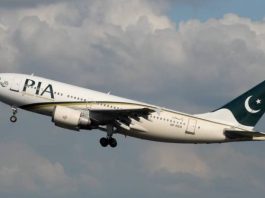Islamabad: Pakistan hopes to bolster its image by giving conflict-ridden Afghanistan half a billion dollars in development aid, documents obtained by News Lens Pakistan reveal.
Minister for Planning, Development and Reforms Ahsan Iqbal has pledged to release $500 million to build Afghanistan’s health, education and infrastructure.
In addition, the minister says that Pakistan is offering 3,000 scholarships to Afghan students to study in various universities of the country.
As many as 100 Afghan students will study in the leading Lahore University of Management Sciences (LUMS), the documents quoted the minister as having said.
“Islamabad wants to build friendly ties with all neighbors specifically Afghanistan,” he reiterated.
There is dire need for exchanges of artists, businessmen and scholars to cement friendly ties between Islamabad and Kabul, he added.
Akhtar Munir, Press Counsellor Embassy of Pakistan in Kabul, in his email, said that Pakistan has been playing “greater role to develop Afghanistan’s damaged infrastructure such as supporting education, health and communication and road sectors.
“Pakistan is funding a 400-bed Jinnah Hospital in Kabul, Nishtar Kidney Center, Jalalabad, 200-bed Naeb Aminullah Khan Hospital in Logar and has given 45 ambulances to the government of Afghanistan,” Munir added.
He said Pakistan has held a week long free eye camp in Jalalabad, the capital of eastern Nangarhar province, and treated 4,818 patients, performed 357 eye surgeries and distributed 4,126 eye glasses.
Abdul Wakil, an Afghan student at International Islamic University Islamabad (IIUI), told News Lens Pakistan that Pakistan is the cheapest country for Afghans to get advance education in all disciplines.
“Relations between the two countries are not friendly due to certain reasons but Pakistan is helpful for Afghans in every aspect,” he remarked.
Hundreds of Afghan students are studying in IIUI in different faculties, Munir said, adding that apart from education, Pakistan is heavily investing in construction of roads leading to Kabul.
As most of the regional as well as international countries such as India and the US have brought massive investment to develop Afghanistan’s infrastructure, Kabul often alleges Pakistan of fomenting violence more in the country than taking part in development activities there.
On March 28, Massoud Andarabi, acting chief of Afghanistan’s National Directorate of Security (NDS), told his parliament that insurgents associated with Pakistani militants’ outfits have been active against Afghan government. He also blamed Pakistan’s intelligence of expanding fighting in Afghanistan, media reports.
Afghanistan’s Wolesi Jirga or lower house of parliament summoned some senior officials to grill them on Afghanistan’s current security situation. “Peace is the desire of all Afghans,” he told lawmakers.
But the minister Iqbal, “We have to begin a fresh chapter in Islamabad-Kabul relations and to focus on economic and social issues.”
He reiterated that one could choose friend but not neighbor and it is vital for both the countries to live in extended cooperation.
Hameed Jan, another Afghan student at IIUI, said though government to government level relations are not cordial but Pakistan’s role to adjust thousands of Afghan students is really a commendable job.
“I would like the government of Pakistan to increase seats for Afghan students in the country’s medical and engineering universities,” Jan remarked.
According to documents, Pakistan has funded different educational institutions in Afghanistan such as Allama Iqbal Faculty of Arts, Kabul University, Sir Syed Post Graduate Faculty of Sciences, Nangarhar University, Liaqat Ali Khan Engineering University, Bulkh, Rahman Baba School, Kabul and Rahman Baba Hostel, Kabul.
Munir said, “Pakistan offers as many as 3,000 fully funded scholarships for higher education for Afghan students.” In addition, 35,000 Afghans have done their graduation and masters from Pakistan during the last three decades, he recalled.
He said that 500,000 refugee students are enrolled in schools across Pakistan. The documents reveal that Pakistan has trained 700 Afghan police and drug control officers, doctors and paramedical staff, diplomats, judicial officers, customs officers, agriculturists, airline staff and bankers.
About development and roads infrastructure, the documents states that Pakistan has helped built 75 kilometers Torkham-Jalalabad Road, additional carriage way on Torkham- Jalalabad Road, three internal roads in Jalalabad, digital radio link between Kabul and Peshawar.
Pakistan has given around 100 public transport buses and 200 trucks to the government of Afghanistan, the documents added.
Over three million Afghan refugees stayed in Pakistan for more than three decades availing health, education as well as economic benefits, the documents added.
Pakistan is largely viewed by other competitors such as India, and Afghanistan even, that Islamabad is not doing enough in taking part in the development of the war-torn country.
According to media reports, Afghan President Ashraf Ghani on several occasions has asked Pakistan to do more to rein in Taliban.
But a senior official at the Ministry of Planning hopes that the new projects will go a long way to bolster Pakistan’s image to great extent.
Zahid Shah, a Pakistani student at Quaid-e-Azam University in Islamabad, said that Pakistan should increase scholarships for foreign students specifically Afghans, which would mitigate the anger of Afghans in the long-run.
“Most of Afghans blame Pakistan for all what is happening in their country,” Shah added.
Hikmat Safi, a freelance journalist and analyst in Kabul, told News Lens Pakistan that Islamabad should assist Kabul in developing its damaged infrastructure but at the same time Pakistan’s role in building peace in Afghanistan is of paramount importance.
“Afghanistan should address if Pakistan has any reservations because peace as well as any turmoil in the two countries are interlinked,” Safi remarked. Pakistan is though making investment in Afghanistan for its own interest but that investment tends to upgrade the life standard of common Afghans, he noted.
He said it is in the interest of Afghanistan to build cordial ties with its neighbors such as Pakistan, China and Tajikistan because Afghanistan is dependent on these countries in terms of importing medicines, foods and commodities of daily use.
Without any reference to any country, Safi said that a third country would benefit from rivalry between Kabul and Islamabad.
However, he said that work on some Pakistani funded projects is moving with snail’s pace such as Logar hospital, which needs to be completed without further delay.
However, Afghanistan Embassy in Islamabad didn’t return call after repeated attempts for version on the issue.
Rustam Shah Mohmand, former ambassador to Kabul and expert on tribal and Afghan affairs, said the step taken by Pakistan is a “commendable job” but Islamabad should do more to reduce the trust-deficit between the two countries
“The environment of mistrust continues to haunt both the countries. Islamabad and Kabul needs to discuss all issues in a candid way to remove clouds of mistrust,” Shah added.
He said it is encouraging that Pakistan has extended financial help to mitigate problems of Afghanistan but Islamabad should focus more to develop its own infrastructure damaged by years-long violence.
According to a report of World Food Programme (WFP), nearly one-third of Afghanistan’s people are food-insecure, which means they cannot get enough nutritious food to support an active, healthy lifestyle.
Despite recent progress, millions of Afghans still live in severe poverty with limited access to food and other basic requirements.
Abdul Salam Afridi, head of Teach for Fata (TFF), an NGO that has a focus on education in the tribal region, while lauding Pakistan’s assistance to Afghanistan has said that Pakistan should develop its own damaged infrastructure instead.
“Change for a peaceful tomorrow is only possible if measures are taken to educate males and females in both the countries,” he added.
“Education of children is a panacea for prosperity in both the countries,” Afridi added.
Home English News Economic Development Pakistan announces projects worth $500m for Afghanistan to bolster image



